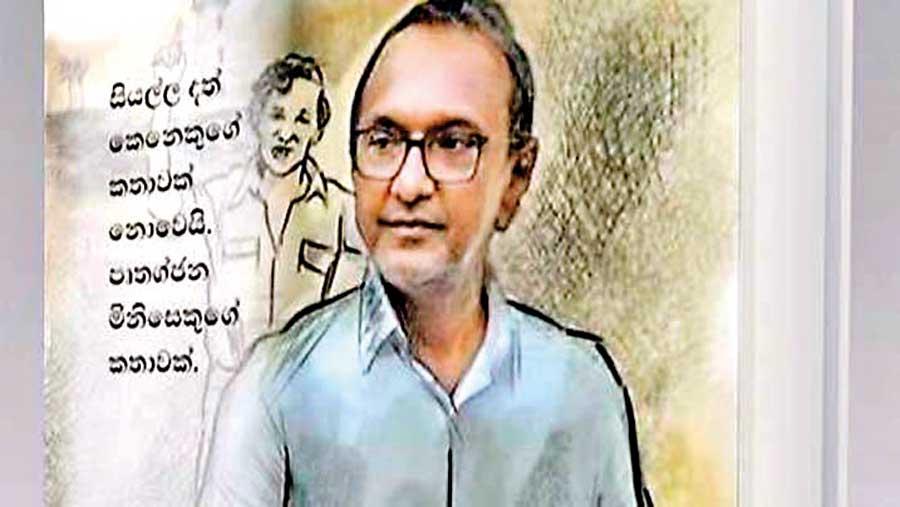11 Mar 2024 - {{hitsCtrl.values.hits}}

Imitiaz, the humble and down-to-earth former Minister of Mass Media in the UNP government of 2001-2004, possesses many leadership traits. Threfore, our focus is now directed towards tackling the inquiry presented in the title of this article
A political leader is a public servant dedicated to enhancing society, elected through votes from the community. More than just a politician, a political leader embodies “statesmanship.” This implies having integrity and the determination to champion what is just, even if it means stepping down from a governmental role or facing electoral defeat. Regrettably, in contemporary times, some politicians declare intentions that differ from their actual actions. They may state one course of action while secretly planning another, ultimately failing to follow through on either of their promised commitments or their true intentions. This misalignment between words and deeds can erode public trust in the political process.
More than just a politician, a political leader embodies “statesmanship.” This implies having integrity and the determination to champion what is just, even if it means stepping down from a governmental role or facing electoral defeat. Regrettably, in contemporary times, some politicians declare intentions that differ from their actual actions. They may state one course of action while secretly planning another, ultimately failing to follow through on either of their promised commitments or their true intentions. This misalignment between words and deeds can erode public trust in the political process.
As citizens, it is crucial to make informed choices during elections, selecting leaders who align with our values and aspirations for positive change. By exercising this responsibility, we contribute to fostering a leadership culture that truly serves the interests and well-being of the people. What qualities does Imitiaz lack that all other party leaders possess? Alternatively, one might question whether any contemporary leader can genuinely boast of possessing such qualities.
A commendable political leader is characterized by the ability to make sound decisions, a steadfast commitment to improvement, a willingness to address and rectify issues, and most importantly, the courage to stand up for what is right. The focus of a political leader should extend beyond personal position, power and authority, with a continuous dedication to societal progress and a genuine value for citizens. Possessing the skills and research capabilities to envision and act towards future growth is essential for every political leader. The hallmark of a successful leader lies in five key virtues: Discipline, Trustworthiness, Courage, Humaneness, and Intelligence.
The writer had the privilege of being present when Imtiaz, the principled son of the late illustrious politician, Bakeer Markar from Beruwala, unveiled his autobiography on Tuesday at his alma mater.
The event was attended by a diverse audience, including clergy and politicians from both sides of the divide. Among the politicians were a handful of honest individuals, while the majority consisted of opportunistic characters. Nevertheless, the intricately organized launch of the senior politician’s autobiography largely preserved an apolitical ambiance, even in the presence of the highest level representatives from all parties, with the exception of a minor instance of political vituperation from one speaker, which was deemed excusable.
Shortly after an opposition member addressed the violation of his parliamentary privileges on Wednesday in parliament, emphasizing the importance of upholding the dignity and decorum of the 225, the Speaker declared the suspension of Ali Sabri Rahim MP for one month. This disciplinary action was taken due to his breach of the customs ordinance, attempting to smuggle gold and mobile phones worth more than 70 million rupees into the country through the VIP terminal of the airport. Additionally, Rahim was accused of misusing Parliamentary privileges and the diplomatic passport.
This development prompts further inquiries into the origins of disruptions to the self-esteem and decorum of Members. The question arises: are these degrading actions initiated by external forces, or do they originate from the actions of the honourable members themselves, as in the instance of Rahim’s alleged misconduct? Notably, several members from both sides of the aisle face similar allegations, as highlighted by the same speaker at the launch who eloquently remarked that some are “surviving along with us.” However, it’s noteworthy that specific cases from the opposition benches were not cited during this statement. This situation underscores the need for a comprehensive and unbiased investigation into the conduct of Parliamentarians to maintain the integrity of men in the calibre of Imitiaz.
In light of the comprehensive media coverage surrounding the event we refrain from rehashing these particulars. Our focus is now directed towards tackling the inquiry presented in the title. Leadership is the ability of an individual to lead, inspire and guide to transform other individuals, groups, organizations or society for a good cause. Drucker said, “Management is doing things right; Leadership is doing the right things.”
Prudence or practical wisdom is the virtue that Aristotle attributes to successful political leaders. A truly great leader is characterized by honesty, accountability and a commitment to accepting responsibility on behalf of the people. They make tough and courageous decisions for the public’s future, prioritizing people over political popularity. Regardless of political affiliations, a leader should work with a diverse range of individuals to achieve the greatest good for the public. Resisting political temptations, maintaining humility and a pragmatic approach are crucial. Importantly, a leader must recognize they are a representative, not the owner, of the people they serve.
Imitiaz, the humble and down-to-earth former Minister of Mass Media in the UNP government of 2001-2004, possesses most of (if not all) the aforementioned leadership traits. During the vote of thanks at the launch, Imitiaz, the leader of winning team at the All Island Schools debating Competition, delivered a deeply emotional tribute to his alma mater. He underscored the remarkably fair treatment he received at this Buddhist school, emphasizing this experience despite being a member of a minority community. While part of the credit should go to his ‘alma mater’, the major honours for the gesture lie in his noble commitment to principles, his adeptness at connecting with individuals from all walks of life through genuine empathy, and his remarkable habit of not fault-finding. Imitiaz, by consistently upholding these virtues, has fostered a positive and inclusive environment that transcends mere demographic considerations.
The orator-lawyer advocated for a collaborative effort from all stakeholders to address the Herculean task of lifting the nation out of its current distressing state. Importantly, he distinguishes himself as a non-ambitious leader, steering clear of power-grabbing tendencies commonly associated with traditional politicians. Certainly, he has a crucial role to play during this critical hour.
Imtiaz, the distinguished journalist, possesses a remarkable ability to articulate his vision clearly, and outline the strategic steps needed to achieve the goal. Words have the power to motivate people and drive them to achieve the seemingly impossible. His strength as a leader is further underscored by his commitment to honesty and integrity. These two elements are foundational to his leadership style. Demanding integrity from supporters becomes a credible expectation when leaders embody these qualities themselves. Leaders excel not just because of their strategic prowess, but also because they adhere to basic principles and convictions. In essence, leadership without integrity is not sustainable.
“The whole art of government consists in the art of being honest.” — Thomas Jefferson
The writer can be contacted at [email protected]
25 Nov 2024 29 minute ago
25 Nov 2024 47 minute ago
25 Nov 2024 2 hours ago
25 Nov 2024 2 hours ago
25 Nov 2024 2 hours ago